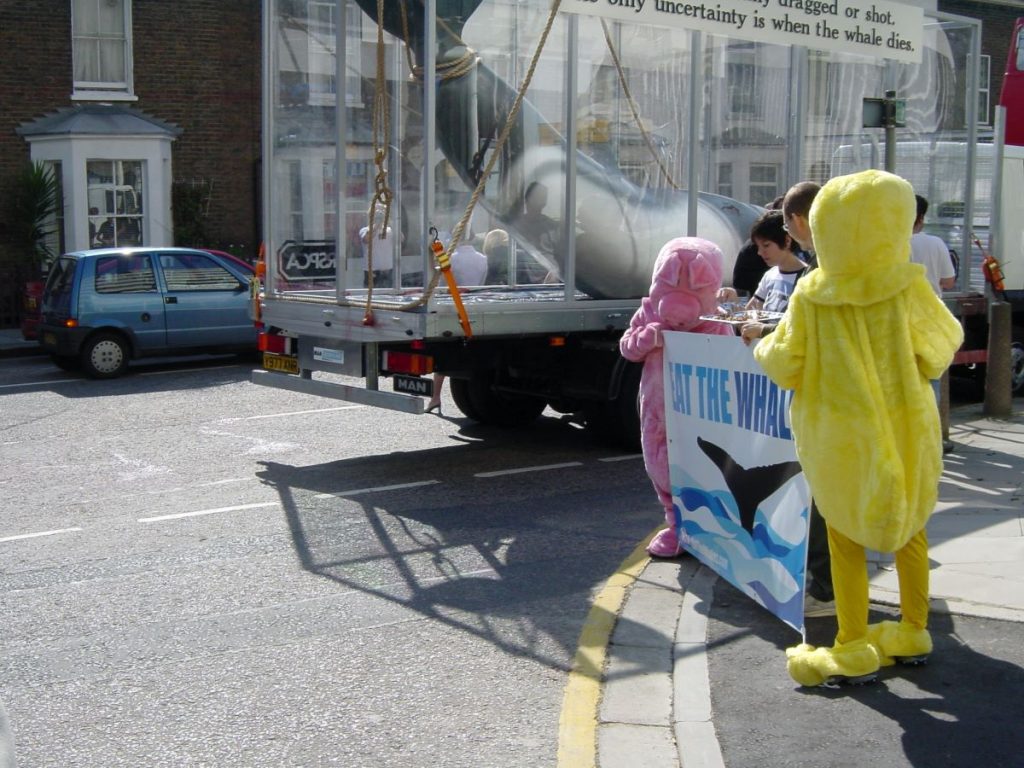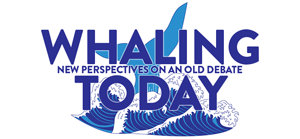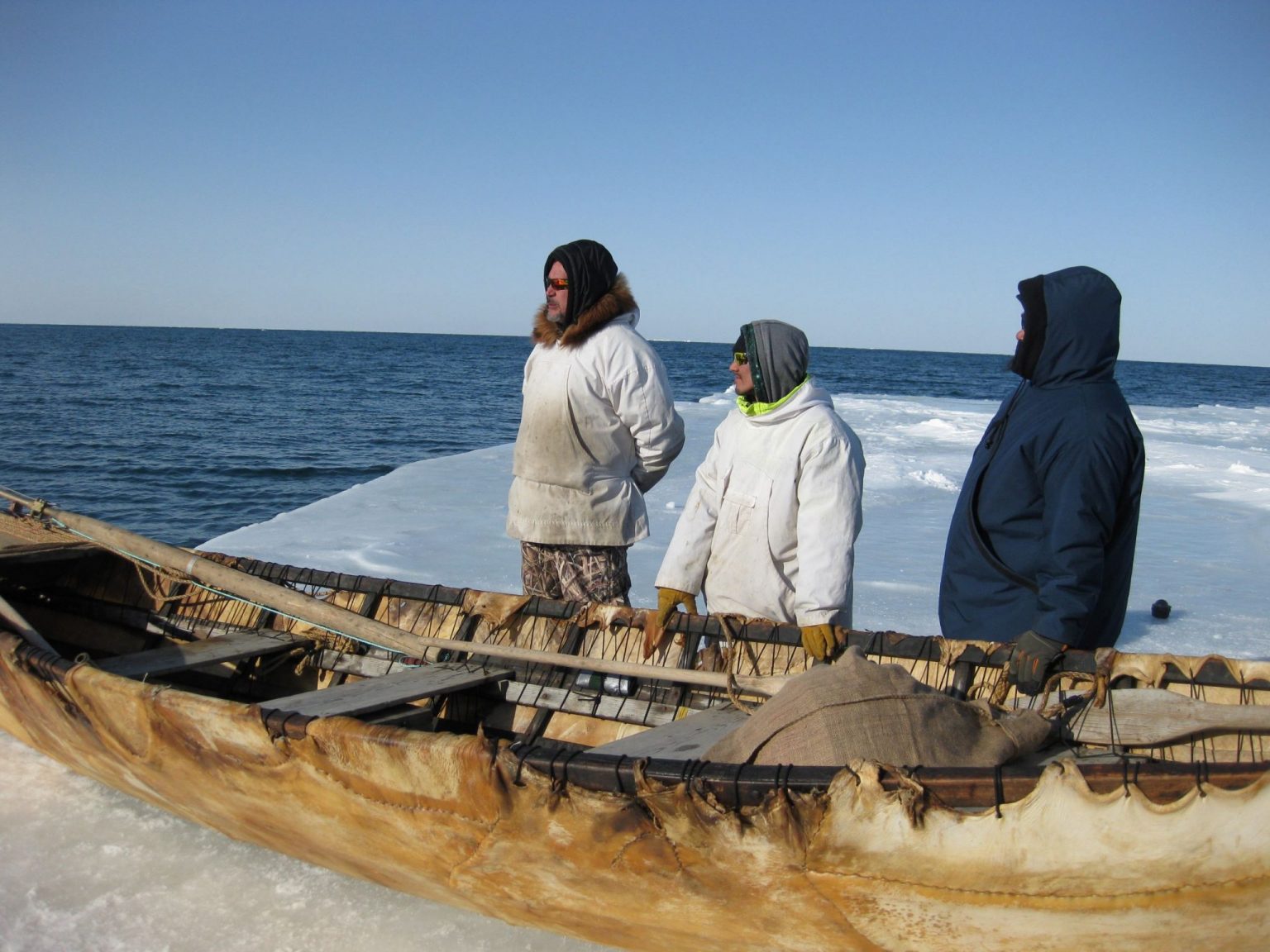Part 2 of 2
Part 1: Revisiting the Roots of the Whaling Issue: Sustainable Use, Environmental Protection
There are various reasons and arguments against whaling, and one could raise keywords such as animal rights, charismatic animals, vegetarianism, preservation of pristine nature, and a vague concept of environmental protection or eco-friendly way of life. They may be paraphrased as an idea that animals, including whales, should not be regarded as food, and that interference with nature should be minimized or even prohibited.
The arguments for the establishment of marine protected areas (MPAs) to curb or prohibit human activities, including fishing, follow a similar approach in many respects. However, through the perspective of the whaling issue, we would like to examine whether such claims and ideas really lead to environmental protection, and whether they are appropriate or desirable for nature and human beings.
When vegetarianism and non-interference with nature spread, the consumption of livestock such as cattle, pigs, and sheep, and wildlife including fish will decrease. And humans will have reduced their relationship with nature outside of tourism. This would mean a decrease in the relationship between humans and nature itself, and a further separation of humans from nature.
In the debate over the whaling issue, it has been pointed out that the anti-whaling arguments, mainly from Western countries, are based on the idea that humans and nature are separate, and that through a viewpoint looking at nature from the outside, we must restrict or ban whaling because humans outside threaten the existence of nature through hunting and development.
This is based on the idea that humans are outside of nature and must be restricted or prohibited because they threaten the existence of another being: nature.

Reversing the Historical Western View of Exploiting Nature
While this may seem to be a reflection or a reversal of the historical background in which Western countries viewed nature as something to be exploited, conquered, and modified ー which resulted in environmental destruction ー the fact remains that nature is viewed in the context of something confronting humankind.
Both environmental protection and destruction are based on the perspective of nature as separate from humans. Both protection and destruction are transitive ideas.
On the other hand, the view of nature on the part of countries that support sustainable use, mainly Asian and developing countries, is based on their history and views of nature and religion (e.g. animism and reincarnation).
When we Japanese and other “primitive” peoples take animals as providers of food, fur, etc., we are grateful that the animals have given their lives for us. From an anti-whaling worldview, this may seem like a strange custom. It seems a contradiction between taking a life and being thankful for it.
In Japan, when a forest is cleared to make way for a building or to open up farmland, a groundbreaking ceremony is held and a shrine is erected. At a resort hotel in Fiji, local residents who donated land to the hotel sang daily songs dedicated to the land gods at a hotel show.
In many countries that support sustainable use, nature is not another being, not an object to be destroyed or protected based on human decisions for a separate form of existence. Instead, nature is the vessel in which we are also contained. Human activity and existence are not opposed to nature, but rather they are one and the same.

Seeing Nature as Inclusive of Humans
I believe that all countries and peoples that are currently whaling or support sustainable whaling, including Japan, possess a view that does not see nature as other beings separate from humans, albeit different countries’ beliefs vary to a degree.
The whaling nations of Norway and Iceland may not fall into this category, but the Nordic countries, with their beautiful but harsh natural environment, seem to have a view of nature that is distinct from other Western nations. There is a clear difference between the worldview of Greek mythology and that of Norse mythology. The world of Norse mythology, where trolls and fairies live in the forests and there is no clear boundary between the human sphere and their sphere of life, may have something in common with the Japanese worldview.

Whales as Raw Materials in the Western View
This is in considerable contrast with the United Kingdom and the United States, which in the past carried out whaling for the sole purpose of obtaining whale oil, which led to worldwide overhunting of whale resources. Theirs was an activity to obtain whale oil as an industrial raw material, no different from crude oil mining. Whales were regarded as lumps of fat that swam in the sea, and their capture was an exploitation of nature.
In that type of Western whaling, the author is uninformed about any ritual or expression of a sense of gratitude for the life of the whale that was taken. In the same United States, however, native whalers still offer a prayer of thanksgiving for the life of each whale taken, and this prayer is an indispensable step in their whaling activities. Unless the prayer is said, the whale cannot be processed.
In anti-whaling countries, whaling is considered a symbol of environmental destruction, and past whaling by Western countries that overhunted in their quest for harvesting whale oil, resulted in overhunting that can certainly be labeled as environmental destruction.
However, whaling that is conducted primarily for the supply of whale meat under strict catch limits, ー and with a worldview that differs from one treating nature and other living creatures, including whales, as another existence separate from us ー can hardly be called environmentally destructive. The roots of the conflict and debate over whaling may be this difference in worldviews, or the lack of recognition of this difference.
In other words, there is a conflict between the view that whales are a resource that can be used sustainably and the view that whales are not a resource and should be protected under any circumstances.
The High Price of Absolute Protection
Generally speaking, the latter view of whale protection is popularly considered to be more nature-friendly. However, this ideology regards nature, as represented by whales, as another form of existence separate from humans.
Both protection and destruction have in common that they see themselves as outside of nature, and believe there is a distance or boundary between humans and nature.
It is true that even under the former approach, in which whales are regarded as a resource, overfishing and environmental destruction have occurred. It may not be useful to discuss the differences between the two different approaches. However, when we position nature and humans as separate entities apart from each other, and demand absolute protection of nature, we are asking for a great price to pay in exchange.
For example, when we speak of protecting marine ecosystems, it is humans, as the beings outside of nature, who damage and destroy them. And therefore we insist on restricting and prohibiting fishing, a human activity, through marine protected areas (MPAs) and other regulations.
The separation of ourselves from the existence of nature makes it necessary to choose between the two (nature or humans) and to construct a dichotomic response to the problem.
Furthermore, this price is often not borne fairly. In other words, those who claim protection and those who pay the price are not identical.

Conflict in Worldviews
There is a term for this: “living room environmentalists.” Those who advocate for strict marine protected areas (MPAs), such as a ban on fishing, and the protection of abundant resources in nature by restricting or banning socioeconomic activities, often live in comfortable homes in large cities in developed countries and watch TV programs such as National Geographic that showcase the beauty of nature in their living rooms, and demand environmental protection.
On the other hand, it is the rural dwellers and citizens of developing countries, living in their surrounding natural environment, who are restricted or lose their livelihoods, fishing, hunting, and forest use, as the cost of environmental protection. This represents an inequity, a gap, and a misalignment between demand and cost.
Leaving aside the question of whether the whaling issue is an environmental issue or not, one gets the strong impression that environmental issues in general are dominated by arguments and claims for a choice between environmental protection and human socioeconomic activities. The argument is that in order to protect the environment, something must be sacrificed, and the argument about who should pay the sacrifice leads to conflict.
This dichotomic characterization of the problem is connected to a worldview that establishes a boundary between humans and nature and views nature as on the other side of that boundary. And it can be said that this forms the basis of the worldview of advanced Western nations.
The Religious Element
Not a few people see religious, especially monotheistic, elements in the claims made mainly by the advanced Western countries on whaling and environmental issues. This is an approach that sees the conflict between good and evil in the problem and applies the structure of monotheism, in which there is only one God, therefore one truth and justice, to the environmental issues.
For example, in the whaling issue, one side holds the perception and assertion is that whaling is not a matter of science or law, but is ethically “evil,” and therefore opposing whaling is thus the right thing to do. From this perspective, it is difficult to imagine seeking compromise by accepting the differences in positions.
On the other hand, in the non-Western worldview, including Japan’s, there are many gods in the world and the boundary between humans and nature is blurred.
There are various gods in nature, and as demonstrated in fables and legends about “god-killers” that have been handed down, it is difficult to construct a composition of good and evil or require a choice between the two. Rather, in this worldview it is easy to tolerate the coexistence of various values and ethics, sometimes in a chaotic state.
When Christianity, a monotheistic religion, came to Japan, the Japanese world probably felt that just a new god had been added to the many gods. This ambiguity would have been unacceptable in a worldview from which the spread of Christianity meant the conversion of all other religions to their singular one. I am sure that I am not the only one who sees parallels here with conflicts over whaling and environmental issues.

No Middle Ground
Japan’s negotiating policy on the whaling issue, as in many other contexts, has been to seek “understanding and cooperation” by persuading the negotiating parties with whom it disagrees, with information and data.
When Japan’s withdrawal from IWC was reported, the Japanese media responded that Japan should not take short-sighted actions such as withdrawal, but rather persistently persuade the other side to understand its position. There exists an assumption or belief that Japan’s claims would be accepted if there is persuasion in good faith and if scientific information such as the state of whale stocks and the truth of the debate over whaling are understood.
The Japanese perspective is that the cause of the conflict is misunderstanding and lack of information. It is difficult for Japanese to understand that anti-whaling groups and anti-whaling nations with a monotheistic worldview hold the viewpoint, whether intentionally or not, that whaling nations must be converted to stop whaling, which should be seen as “evil.”
Discussions and negotiations on the whaling issue are often described as irreconcilable. If one party believes that mutual understanding and compromise are the keys to solving the problem, while the other party aims to make the other party accept its own values and ethics, it is a natural consequence that discussions and negotiations will not succeed in finding a middle point.
Conclusion
Japan’s proposal at the 67th IWC General Assembly in 2018, recognizing and assuming that negotiations would not be possible, aimed to secure the functioning of the IWC as an intergovernmental international organization, even in part, by accepting the coexistence of different views on whaling.
The IWC rejected even this proposal for coexistence, leading to Japan’s withdrawal from the International Convention for the Regulation of Whaling. But Japan’s withdrawal does not mean the end of the whaling issue.
The reality is that there are other whaling nations in the world besides Japan. Moreover, there is a need for the conservation and management of whale stocks, which are defined as highly migratory species under the United Nations Convention on the Law of the Sea and require international efforts for cooperation in conservation and management.
In practical terms, the IWC has already abandoned the management of whale resources and whaling, and the Western worldview caused this situation.
In order to meet the need for conservation and management of whales as resources, it may be necessary to establish an international organization based on a non-Western worldview that can accept the coexistence of different values and diversity. We hope that Japan’s withdrawal from the IWC signifies a departure on this new path.
This article is based on the report by Joji Morishita, PhD, Tokyo University of Marine Science and Technology, in Japanese:”Reconsidering the Background of Whaling Issues -Sustainable Use and Environmental Protection, World Views on Humans and Nature” (p9-14, Institute of Whale Research Newsletter No. 493, March 2022, ISSN 1340-9409)
References used by the author for this article include: Eugene LaPointe, Embracing the Earth’s Biological Resources: Perspectives on Wildlife Conservation (Shinpusha, 2005, in Japanese); Joji Morishita, Withdrawal from IWC and International Negotiations (Seizando Shoten, 2019, in Japanese); Martin D. Robards, Randall R. Reeves, “The global extent and character of marine mammal consumption by humans:1970-2009” and “Biological Conservation,” 144 (2011) 2770-2786; Frederic Ducarme, Gloria M. Luque, Franck Courchamp., “What are “charismatic species” for conservation biologists?” 2012)
Author: Joji Morishita, PhD
Professor, Tokyo University of Marine Science and Technology
RELATED:
- Japan Whaling Guru: Sustainable Whaling Is the Ideal Option
- Whales in the Japanese Landscape: A Test of Character, Past and Present
This article is published in cooperation with the Institute of Cetacean Research in Japan. Let us hear your thoughts in our comments section.

